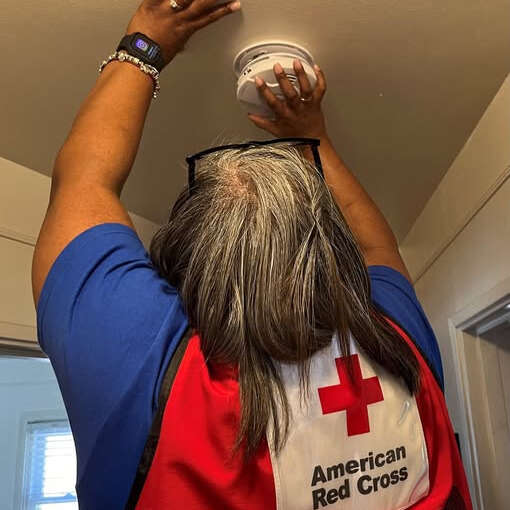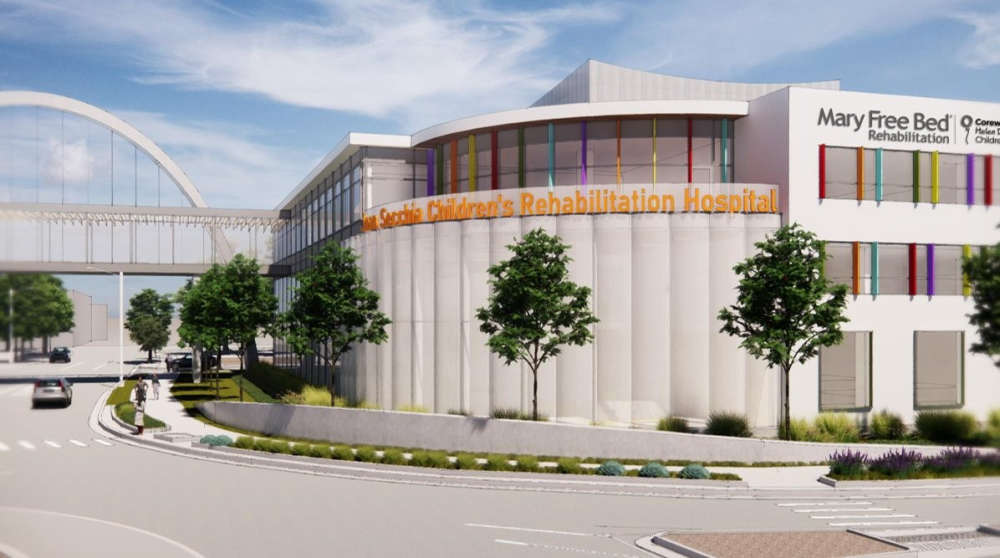
With two days to spare before a government shutdown, the governor put her signature to a nearly $70 billion budget plan for the next fiscal year.
(9and10News) - Both sides of the aisle are touting victory with this budget deal, the largest in state history. The camaraderie shown in the process comes from a deal, made earlier in the year, to involve the governor’s office in exchange for more COVID power for the legislature.
“Getting the agreement with the House in the summer was also important moving us forward and showing that the administration is willing to work with anyone,” said Dave Massaron, the state budget director and lead negotiator, “That’s what the governor told us to do, is to move forward any way possible to advance the ball for Michigan residents.”
It’s easier to agree when there’s money for everyone. However, that can also be seen as pork spending. A good amount goes to “enhancement grants,” sometimes seen as pet projects.
“We wanted to acknowledge that they had some priorities that they wanted to address and we worked with them to make sure they were able to address some of them,” said Gov. Whitmer, “We also made priorities that I was eager to address that maybe they weren’t keen on. That’s how negotiations work.”
Whitmer agreed with a vast majority of the deal, the few vetoes used for things like funding programs pushing pro-life efforts.
“It’s an example of an area that we both acknowledged that we simply weren’t going to agree,” said Massaron, “But we’re able to come to an agreement and a path forward.”
The price tag is so high, partly, because of major one time funding sources. Which creates the next problem coming next cycle. When maybe those seeing an increase, like the 5% to higher education, doesn’t return next year.
“Every university understands how precarious all the discussions were,” said Whitmer, “They also understand where these resources are coming from and it’s not baked in, as we move forward.”
According to a press release from the governor’s office, here are some highlights of the deal:
SKILLS
The budget fully funds Michigan Reconnect and Futures for Frontliners, providing direct support to help people get higher education or skills training as the state moves towards its Sixty by 30 goal of having 60% of working-age adults earn a postsecondary education or skills training by 2030. The investments in today’s budget will help the 167,000 Michiganders who have signed up for Reconnect and Futures for Frontliners pursue their potential and provide employers with the talent they need to succeed. The funding for Reconnect will provide a tuition-free path to an in-demand industry certificate or associate degree for Michigan adults aged 25 and older, Futures for Frontliners will pay for frontline workers to attend local community college tuition-free, and there is also additional funding for the Going Pro program, which backs employer-based training grants to help workers earn industry-recognized credentials and certificates.
CHILDCARE
The budget expands access to childcare, helping families get back to work by making 105,000 more children eligible for low or no-cost care and increasing rates and issuing stabilization and startup grants for childcare providers. It also delivers a one-time, $1,000 bonus to childcare workers, who work hard every day taking care of our kids. Investing in childcare is a shared priority that helps families and businesses thrive as we usher in a new era of prosperity for our communities.
INFRASTRUCTURE
The budget invests $196 million to repair or replace nearly 100 crumbling bridges in serious and critical condition and create 2,500 jobs. It also helps local governments prepare for climate change and extreme weather and fixes dams to mitigate flooding and other hazards.
HEALTH
The budget invests in healthcare to keep Michigan families safe too. It makes permanent the $2.35/hour raise for direct care workers who have been on the frontlines of the pandemic, taking care of our most vulnerable. It also offers alternatives to traditional nursing homes for our seniors and funds treatment for sickle cell disease and expands the Healthy Moms, Healthy Babies program to ensure moms have the support they need.
WATER
The budget funds the replacement of lead service lines in Benton Harbor to provide access to safe drinking water and provides new funding for the Emergency Drinking Water Fund to help the state address drinking water emergencies. There is funding to clean up contaminated sites across the state, resources targeted for the Western Lake Erie Basin, and investments to eliminate lead poisoning in homes.
PUBLIC SAFETY
The budget makes investments to keep families and communities safe and reduce crime, with funding to hire and train state troopers and corrections officers, including resources to ensure every trooper is equipped with a body camera. The budget also provides funds for 911 system upgrades and improved training.
FISCAL RESPONSIBILITY
Finally, the budget puts $500 million into the state’s rainy-day fund, the largest one-time deposit ever that brings the total rainy day fund balance to nearly $1.4 billion, the largest in state history. This fiscally responsible investment ensures the state has resources in place to prepare for potential crises, public health or otherwise. We are also enacting another fiscally responsible clause by passing tax legislation to save small businesses in Michigan $200 million annually and keep those dollars in the state instead of sending them to Washington, DC.
To read her transmittal letter, click HERE.

 4/18/25 - List of Easter Events for the Kids
4/18/25 - List of Easter Events for the Kids
 04/15/25 - Red Cross Going Door to Door This Month
04/15/25 - Red Cross Going Door to Door This Month
 11/06/24 - ELECTION 2024 - ELECTION RESULTS
11/06/24 - ELECTION 2024 - ELECTION RESULTS
 8/15/24 - Groundbreaking For New Children's Rehab Hospital
8/15/24 - Groundbreaking For New Children's Rehab Hospital


